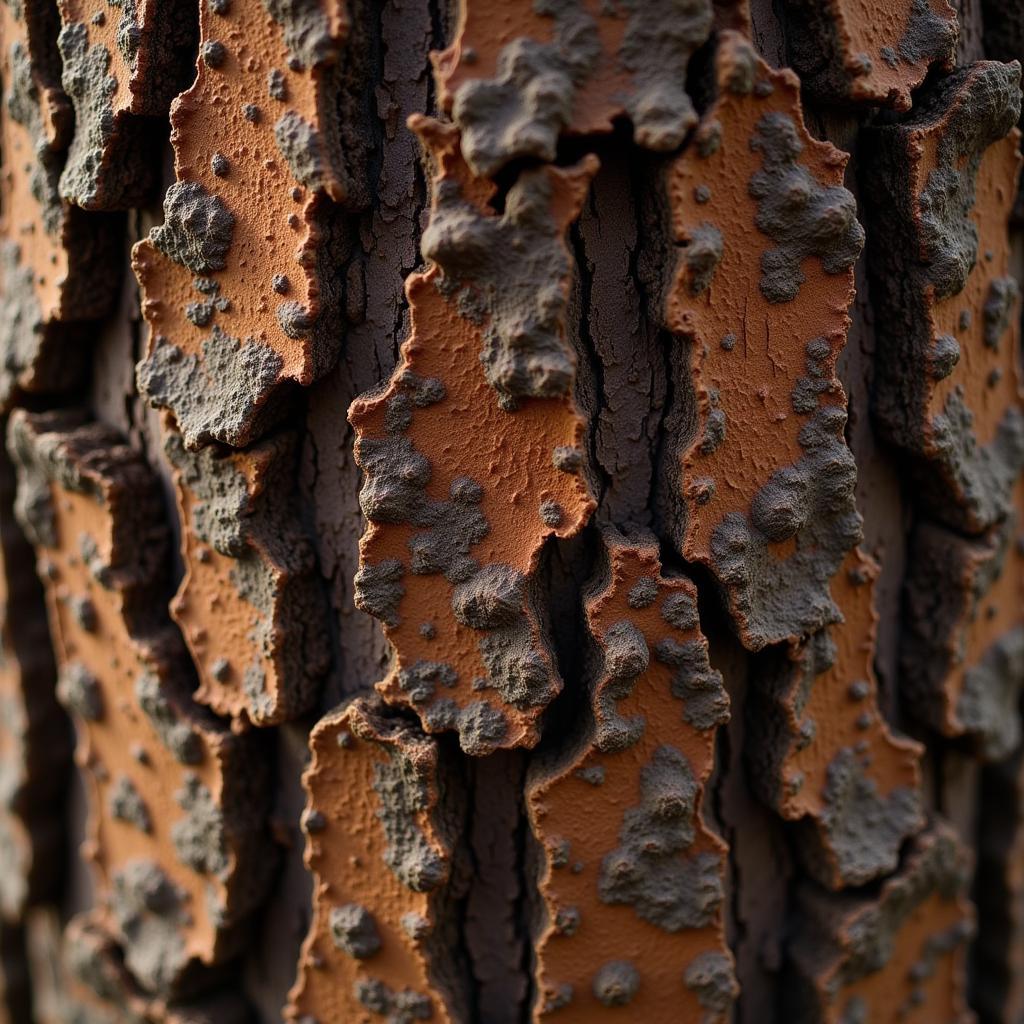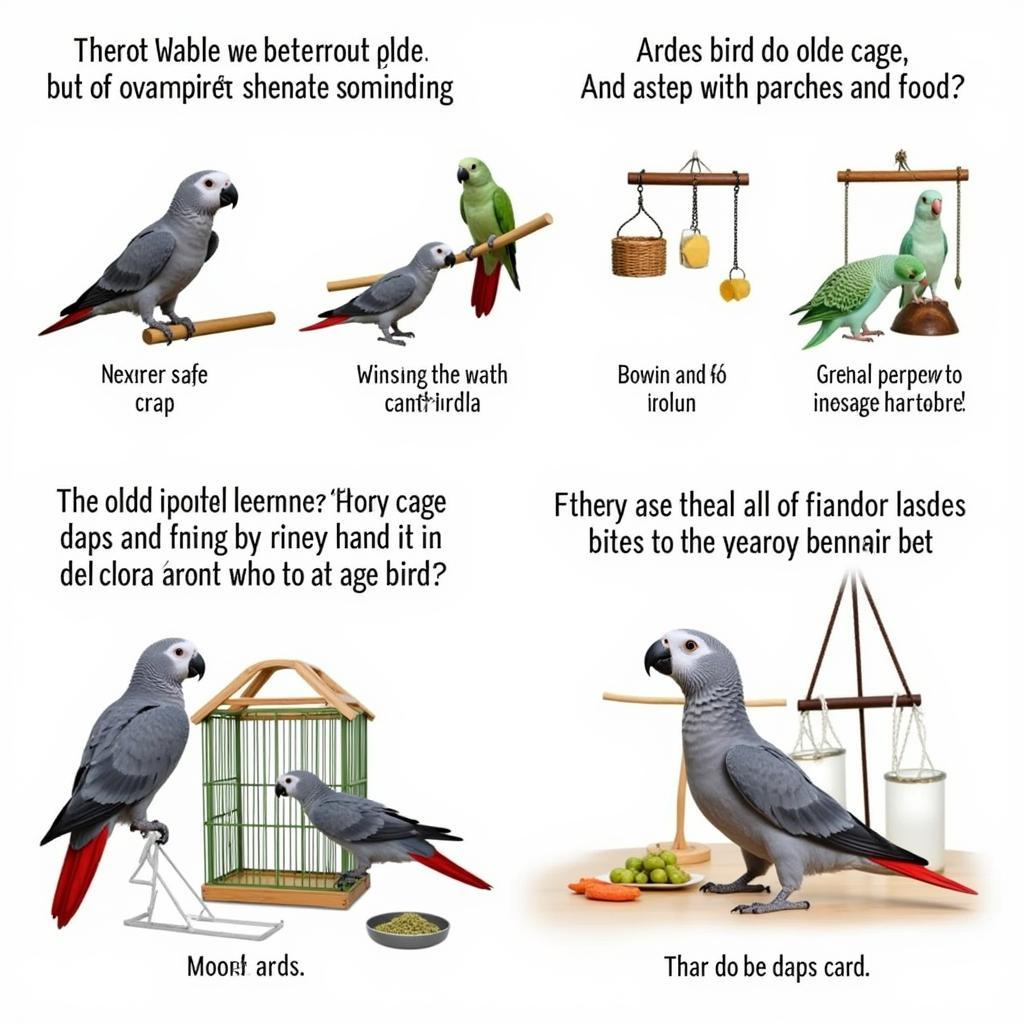Understanding African Grey Parrot Molting
African Grey Parrot Molting is a natural process that involves the shedding of old feathers and the growth of new ones. It’s a crucial aspect of their health and well-being, but it can also be a confusing time for owners. This article will provide a comprehensive guide to everything you need to know about African grey parrot molting, from the signs and symptoms to how to best support your feathered friend during this time.
What is African Grey Parrot Molting?
Molting is essentially a feather replacement cycle. Just like humans shed skin cells, birds shed and regrow their feathers. This is essential for maintaining their flight capabilities, insulation, and overall appearance. For African greys, molting is a gradual process, typically occurring once or twice a year. It’s important to understand that the african grey parrot molting season can vary slightly depending on individual birds and environmental factors.
Why do African Grey Parrots Molt?
Feathers, despite their strength and flexibility, don’t last forever. They become worn and damaged over time. Molting allows African grey parrots to replace these old feathers with new, healthy ones, ensuring they remain in top condition. This is vital for their survival in the wild, allowing them to maintain efficient flight and effective camouflage.
What triggers molting in African greys? Several factors contribute to the molting process, including hormonal changes, daylight hours, nutritional status, and overall health.
Signs of Molting in African Grey Parrots
How can you tell if your African grey is molting? There are several common signs to look out for. One of the most obvious is the presence of dropped feathers around the cage. You might also notice pin feathers, which are new feathers encased in a keratin sheath. These look like small, pointy quills. Your parrot might also exhibit increased preening and itching as the new feathers emerge. Some African Greys experience [african grey parrot itching](https://omenkamag.com/african grey parrot itching/) during molting. During the african grey parrot molting period, you may notice some african grey losing down feathers.
How Long Does Molting Last?
The duration of the molting period can vary, typically lasting several weeks to a few months. It’s important to monitor your bird closely during this time. Some owners worry when their young african grey 5 months old starts molting, but this is a normal part of their development.
Dr. Anika Sharma, an avian veterinarian specializing in African grey parrots, notes, “Molting can be a stressful period for parrots, so it’s crucial to provide them with extra care and support during this time.”
Caring for a Molting African Grey Parrot
Providing the right environment and support during molting is essential. Ensure your parrot has a balanced diet rich in vitamins and minerals. Offer fresh fruits, vegetables, and high-quality parrot pellets. Bathing can also help soothe itchy skin and dislodge loose feathers. A humidifier can help maintain proper humidity levels, which can alleviate dry skin.
Conclusion
African grey parrot molting is a natural and necessary process. By understanding the signs, providing appropriate care, and being patient, you can help your feathered companion navigate this period comfortably and emerge with a beautiful new plumage. Remember, observing changes in your parrot’s behavior and consulting with an avian veterinarian is always recommended if you have any concerns.
FAQ:
- How often do African grey parrots molt? (Typically once or twice a year)
- Is it normal for my African grey to be grumpy during molting? (Yes, some parrots experience mood changes.)
- What should I feed my molting African grey? (A balanced diet rich in vitamins and minerals.)
- How can I help soothe my parrot’s itchy skin? (Bathing and humidity can help.)
- How long does molting typically last? (Several weeks to a few months.)
- What are pin feathers? (New feathers emerging through a keratin sheath.)
- Should I be concerned if my parrot loses a lot of feathers? (Consult an avian vet if you’re concerned.)
Need more assistance? Contact us at:
Phone Number: +255768904061
Email: kaka.mag@gmail.com
Address: Mbarali DC Mawindi, Kangaga, Tanzania.
We have a 24/7 customer service team.



